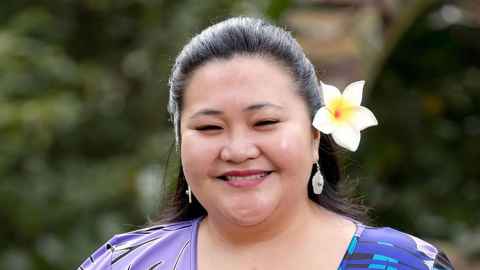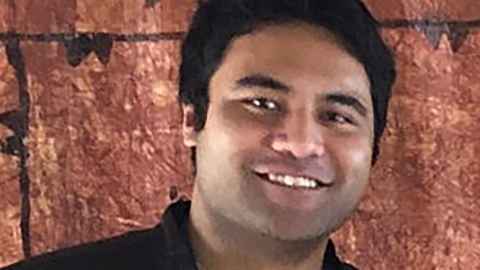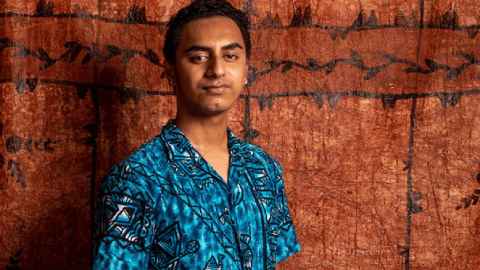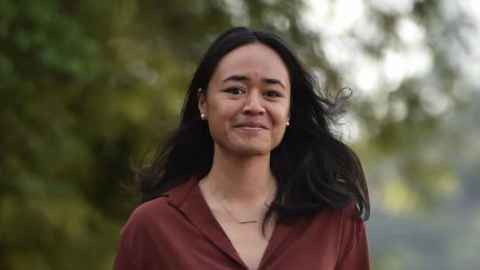Celebrate Vaiaso o le Gagana Sāmoa 1-7 June
30 May 2025
Celebrate the third most spoken language in Aotearoa with Sāmoa Language Week 2025.

While the nation of Sāmoa celebrates Independence Day on 1 June, Aotearoa New Zealand celebrates Sāmoa Language Week 2025.
The theme is: “Ia malu lou sā, Folau i lagimā – A well-grounded self is a successful self.”
The Komiti o le Vaiaso o le Gagana Sāmoa (Sāmoa Language Week Committee) explains that this year’s theme draws on the metaphor of a well-crafted ocean vessel – built with care and precision to ensure a safe and steady journey. When all parts are thoughtfully constructed, the vessel remains balanced, strong, and ready to face the open seas. Likewise, a well-grounded person is not easily shaken or defeated – they are firmly rooted and well-prepared.
Culture is my strength – Sili-Mireta Ropati
University of Auckland’s Acting Deputy Pro Vice-Chancellor Pacific, Sili-Mireta Ropati (Leauva’a, Lalomanu, Lufilufi), is the first Sāmoan – and the first Sāmoan woman – to hold this role.
She helps shape policies and initiatives that support Pacific students and staff, ensuring their voices are heard. Ropati's leadership has been instrumental in the development of the University’s first Pacific Strategy, launching on 9 June.
Born and raised in Aotearoa, she is immersed in the values and traditions of her ancestors. Unlike many in the diaspora, Sāmoan is Ropati's first language. Her fluency and deep cultural understanding have been vital to her work. She emphasizes the importance of cultural identity and language in education and advocates for the inclusion of Pacific perspectives in the curriculum.
Her journey hasn’t been without challenges. The 'first in her family' to pursue and complete tertiary education, she has navigated the pressures of balancing cultural responsibilities with academic and professional commitments.
“There were times when I felt like I had to choose between my culture and my career, she recalls. “But I realised that my culture is my strength – it’s what makes me unique in this space.”
There were times when I felt like I had to choose between my culture and my career. But I realised that my culture is my strength—it’s what makes me unique in this space.”

Strength of aiga – Marvin Schuster
University of Auckland doctoral candidate Marvin Schuster (Tauese, Malie, and Alamagoto) is researching the experiences of Pasifika caregivers with autistic children. Raised in Papatoetoe, South Auckland, with his parents and two brothers, Marvin’s research is deeply personal, both his siblings have Autism Spectrum Disorder (ASD).
“Given my own family’s experience – especially having two brothers with ASD and other related diagnoses that goes with that – this research means a lot to me.”
He acknowledges the sacrifices his parents made to support his education while caring for his brothers, who both live at home and will likely continue to do so.
“The older I get, the more I understand how difficult that experience must have been. My mother has had a lot of support from our whānau, especially my father. Many families don’t have that.
“There have been a lot of sacrifices in my household to support one another. My education has been a priority, and ensuring my brothers are well cared for has always been central.”

Solid foundation – Iatua Felagai Taito
Iatua Felagai Taito (Lano and Sala’ilua, Savai’i) is a doctoral candidate in Dance Studies at the University of Auckland. He is also an actor, author, dancer, poet, and advocate for Pacific Rainbow communities in Aotearoa.
Now in his second year of research, Taito lives by the Sāmoan proverb: “E sui faiga ae tumau fa’avae” – Practices may change, but the foundations remain the same.
As a proud New Zealand-born Sāmoan and queer Christian, Taito brings authenticity from his ancestors, village, and aiga into his work.
“I’m exploring how different dances embody Indigenous knowledge and practices. I’ve had to critically examine the impacts of Christianity and colonisation on our dance traditions. For me, it’s about acknowledging that history while staying true to who I am and my culture.”

Technology enhancing well-being – Julia Lusia Imo
Julia Lusia Imo, a doctoral candidate in Bioengineering at the University of Auckland, has ancestral ties to Solosolo and Fasito’o-uta (father’s side) and Moata’a, Fagaloa Samamea, Taelefaga, and Lalovaea (mother’s side).
Her research focuses on using technology to enhance mental health and well-being. She is currently co-designing a well-being device in collaboration with Pacific communities.
“Having witnessed the stigma around mental health in Pacific contexts, I’m motivated to uplift these insights to inform more holistic, inclusive approaches.
“It’s important that emerging mental health technologies are inclusive by design – created with diverse communities in mind, especially Indigenous and priority groups.”
Julia’s work is grounded in Pacific principles, particularly Sāmoan values, and guided by the proverb:“E fofo le alamea le alamea” – Solutions to a community’s challenges are often found within the community itself.
“I’m incredibly fortunate to conduct this research alongside the communities I aim to serve. None of it would be possible without their trust, generosity, and collaborative spirit.”
Fun facts
- Pacific Language Week celebrations originated in Sāmoa almost 20 years ago in 2007 with Vaiaso o le Gagana Sāmoa, founded by Fa’alapotopotoga mo le A’oa’oina o le Gagana Sāmoa i Aotearoa (FAGASA).
- The Royal Sāmoa Police Band parades through Apia every weekday morning, ending with a flag-raising ceremony at the Government Building.
- In 2011, Sāmoa skipped December 30th to align its time zone with New Zealand and Australia.
- The pe’ape’a, or white-rumped swiftlet, lives in caves and uses echolocation - the use of sound as a form of navigation, just like bats!
- Sāmoa has no poisonous land snakes or spiders due to its isolation from Australia where many venomous species originate. While species can hop from island to island, the distance and lack of land bridges make it unlikely for venomous snakes or spiders to reach Sāmoa naturally.
- Sāmoa is often called the heart of Polynesian culture, with deep genealogical ties to Tonga and Fiji.